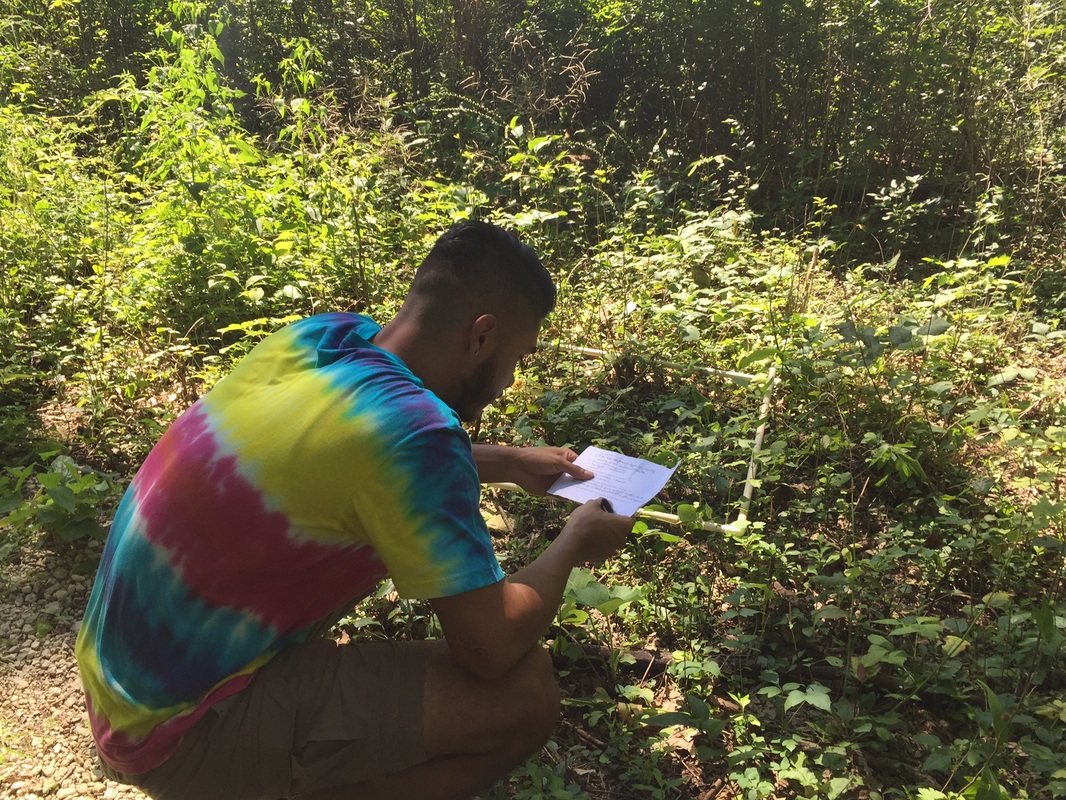|
Do you stop to inspect the small details of nature? Do you ever pause, perhaps stoop down low to the ground, and soak in all the amazing and interlocking parts of God’s creation? In my Ecology class this semester, I was inspired to take more time to observe the small details of the natural world. This inspiration began earlier this year with my trip to the National Conference on Undergraduate Research in March. One of the plenary speakers was David George Haskell, author of the book The Forest Unseen. He spoke about this book project, which involved his journey into the woods of Tennessee on a regular basis to observe the activity and intricacies of nature in a one square meter area of the forest. His vibrant way of describing this endeavor heightened my excitement over teaching Ecology the following semester. His insights ranged from using our sense of smell to gain insight into the microbial world that our naked eyes cannot detect to the idea of trees using Wi-Fi (volatile chemical signals) and wired connections (mycorrhizae) to give and receive information. During my first week of class in the fall semester, my ecology students and I went out to the natural areas around campus to similarly study the small, often unobserved, or simply overlooked aspects of nature. Although not a time course study like Haskell’s, this gave us a chance to brainstorm about all the things we could see upon taking the time to simply sit still and be observers. We also took time to consider the things for which we could see evidence if not all the actual processes or players involved and how our small area of observation might be representative of the larger ecosystem. Each person was stationed in a different location along the forested creek corridor or by the native plant basin. We observed pollinators, evidence of herbivory (including the trail of a leaf miner in the leaf of a white snakeroot plant), the complexity of the detritus on the forest floor, and the diversity of plants that can be found in a small area. Coming back together as a group to discuss our observations, we particularly noted how this activity prompted us to think more about the processes that are unseen, such as decomposition and nutrient cycling, that are so critical to the maintenance of ecosystem health.
Consider going out there and making your own observations of God’s wonderful creation (Haskell in particular was undaunted by the chill of winter to do so!), or perhaps for the winter consider curling up to read The Forest Unseen to gear you up for the spring.
0 Comments
|
Abbie SchrotenboerI'm a biology professor at Trinity Christian College. I'll be using this page to share interesting stories related to ecology and conservation at Trinity and in the Chicago area (although I might be tempted to expand my geographic focus upon occasion). Archives
December 2020
Categories |

 RSS Feed
RSS Feed
